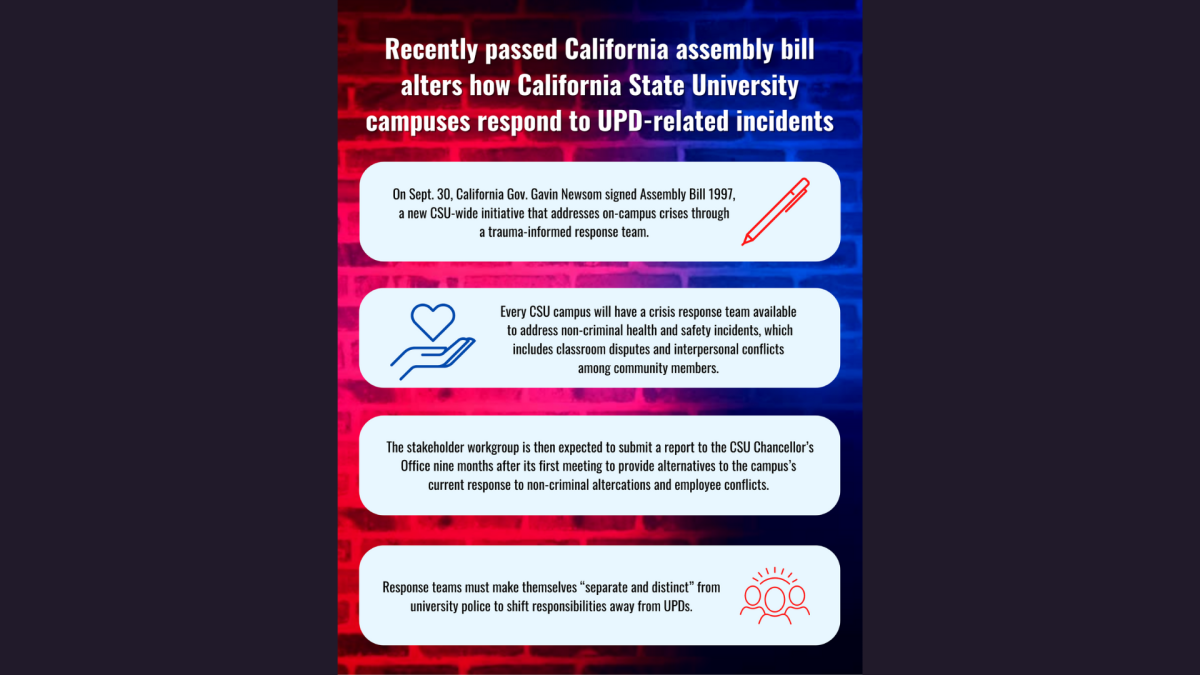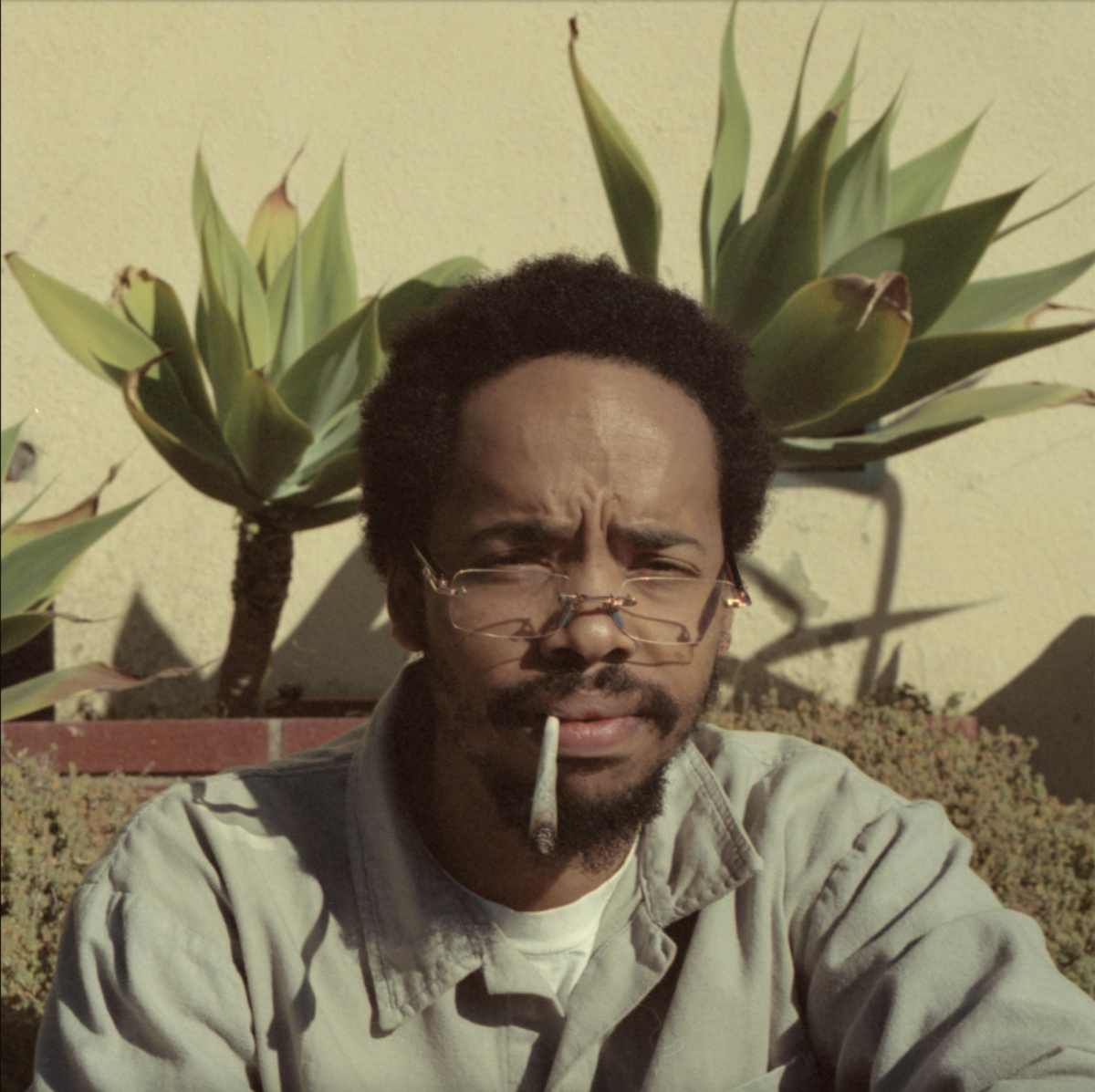On Sept. 30, California Gov. Gavin Newsom signed Assembly Bill 1997, a new California State University-wide initiative that addresses on-campus crises through a trauma-informed response team.
The bill states that every CSU campus will have a crisis response team available to address non-criminal health and safety incidents, which includes classroom disputes and interpersonal conflicts among community members.
Roy Buyco, president of SJSU’s California Faculty Association chapter, mentioned how the bill would empower student voices and listen to how they want to be served on their campus.
The California Faculty Association is a union representing about 30,000 professors, lecturers, librarians, counselors and coaches throughout the CSU system.
“We think the students ought to have a say on this, right?” Buyco said. “That’s our number one. We want to support the students and their views on the kind of campus safety they want.”
The Assembly Bill 1997 states that before July 1, each CSU campus must convene a stakeholder meeting that includes students, faculty, campus health and safety personnel, staff and bargaining unit representatives.
The stakeholder workgroup is then expected to submit a report to the CSU Chancellor’s Office nine months after its first meeting to provide alternatives to the campus’s current response to non-criminal altercations and employee conflicts.
The bill specifically mentions that the respective response teams must “separate and distinct” themselves from university police to shift responsibilities away from UPDs.
SJSU’s UPD is responsible for processing, investigating, and prosecuting all crimes committed on university property and grounds owned, operated, controlled or administrated by the CSU, according to the UPD jurisdiction and enforcement webpage.
The SJSU chapter of Students for Quality Education said it believes this is an obvious step in the right direction.
“It is no secret that university police are ill equipped in responding to mental health instances on campus, it is not a secret that police are unsafe for the campus community, and it is no secret that we need alternatives,” Students for Quality Education stated in an email.
Students for Quality Education is an organization that was formed in 2007-08 by students in the CSU system to boost the student movement for educational rights in public higher education, according to its webpage.
SJSU’s Students for Quality Education said it felt the state government has stepped in where the greater CSU system has failed.
Jonathan Karpf, California Faculty Association’s political action and legal chair, said the narrow scope of police responsibility is detrimental to students and having a greater range of resources could save lives.
“I think having people that are trained to deal with the problems that we’re addressing, makes a great deal more sense than having everything turfed to police who really are only dealing with criminal justice issues,” Karpf said.
He also said calling the police can have implicit danger.
“If a student had a mental health breakdown on campus and police responded, there’s a reasonably good likelihood that they might be injured or killed,” Karpf said. “Having psychologists and social workers respond to these kinds of issues rather than police just makes sense.”
Currently, throughout the CSU system, there is a disparate allocation of money and personnel to address Title IX accusations while some respective campuses allocate about $200,000, according to an Oct. 2 CalMatters article.
Others have an annual budget of around $10,000, according to theCalMatters article.
Across the U.S., about a quarter of female undergraduate students and 13% of undergraduates overall reported experiencing a non-consensual sexual incident, according to an Jan. 17, 2020 Association of American Universities report on sexual misconduct.
Both California Faculty Association and Students for Quality Education members said the assembly bill has been in the works for about four years and is one of several of those championed by both organizations, but the only one to make it across the state governor’s desk.
Bills on topics including more paid-parental leave for CSU faculty, the CSU’s divestment away from fossil fuel and addressing teacher-certification needs through the state are all issues that have not made it to the state governor’s desk.
“We don’t know why Newsom would support [Assembly Bill 1997] over others considering the importance of those other bills,” Students for Quality Education stated. “We do know that this bill held urgency due to the well known mental health crisis college campuses are having.”






































